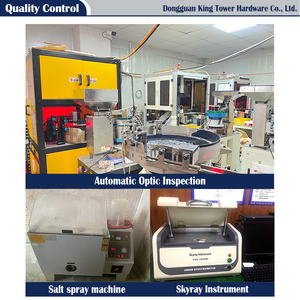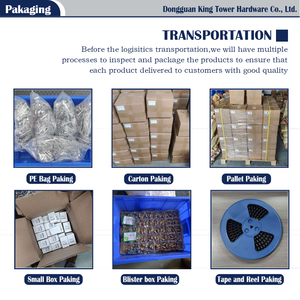Understanding Machine Screws: An Essential Component
Machine screws are versatile fasteners that play a crucial role in a wide array of applications, particularly in the manufacturing and construction sectors. Designed to hold machinery and components together, machine screws are renowned for their strength, durability, and reliability. This description will explore different types, applications, features, and advantages of machine screws, providing a comprehensive understanding of this essential hardware.
Types of Machine Screws
Machine screws come in various types, each designed for specific applications and environments. Below are the most common types:
- Hex Head Machine Screws: Ideal for high-torque applications due to their wider head.
- Socket Head Cap Screws: Feature a cylindrical head with a hex socket, providing a secure fit and enabling use in tight spaces.
- Flat Head Machine Screws: These flush screws are perfect for applications requiring a smooth finish.
- Pan Head Machine Screws: Characterized by a rounded head and are primarily used where a rounded top finish is preferred.
Understanding the types of machine screws helps in selecting the right one for your project, ensuring optimal performance and functionality.
Applications of Machine Screws
Machine screws are utilized in numerous industries due to their diverse applications:
- Automotive Industry: Used to assemble engine components and body panels.
- Aerospace Sector: Essential for securing parts in aircraft and spacecraft due to their reliability under extreme conditions.
- Electronics Manufacturing: Used in circuit boards and electronic enclosures.
- Construction: Commonly used for structural connections and fittings in both commercial and residential buildings.
These screws are invaluable in scenarios that require strong, reliable fastening solutions, ensuring safety and durability in various projects.
Features and Advantages of Machine Screws
Machine screws offer numerous features and advantages that make them stand out as a preferred fastener choice:
- Material Options: Available in various materials such as stainless steel, carbon steel, and brass, offering resistance to corrosion and wear.
- Versatile Sizes: Come in a wide range of lengths and diameters to cater to different fastening needs.
- Ease of Installation: Designed for straightforward installation, typically using a straightforward screwdriver or wrench.
- High Load-Bearing Capacity: Provide substantial strength for holding even heavy components in place.
These features contribute to the advantages of selecting machine screws, including longevity, performance efficiency, and ease of use.
How to Choose the Right Machine Screw
Selecting the right machine screw is crucial for the success of your project. Here are some key considerations to ensure you make the appropriate choice:
- Material: Consider the environmental factors, such as exposure to moisture or chemicals, which may influence the choice of material.
- Length and Diameter: Ensure the dimensions are suitable for the components being fastened; incorrect sizes can lead to unstable connections.
- Head Style: Choose a head style that matches your installation tool and application requirements.
- Thread Type: Select between coarse and fine threads based on the material you are fastening, as they offer different grip strengths.
By considering these factors, you can ensure a perfect fit and maximum durability, ultimately enhancing the integrity of your assemblies.










































































































































































































